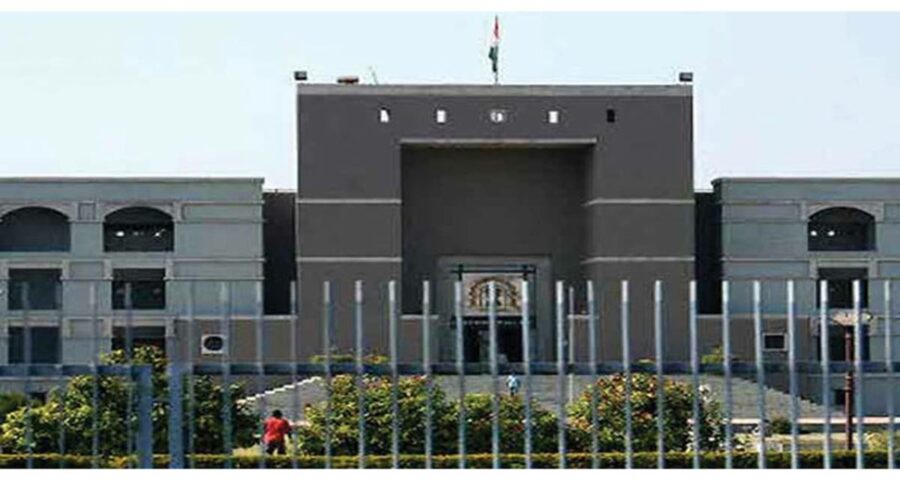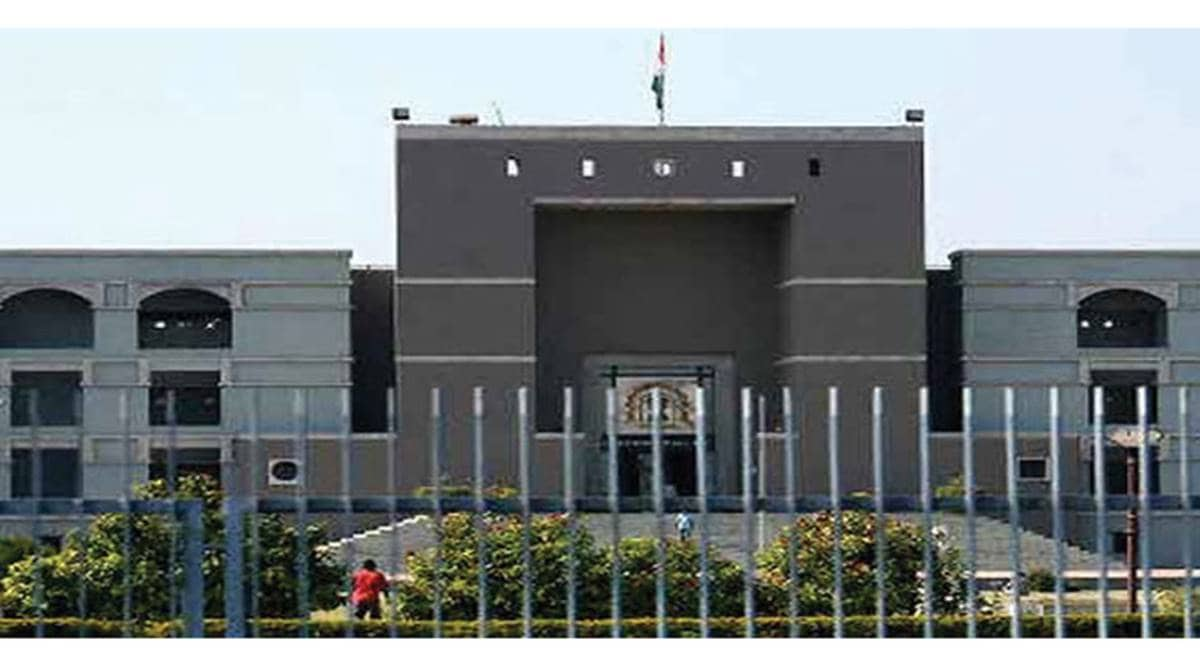The bench also pulled up the Ahmedabad Municipal Corporation (AMC), for following a policy different from that of the state government with respect to admissions and treatment in hospital strictly by the 108 ambulance service.
Hearing a public interest litigation taking suo motu cognisance of Covid-19 upsurge in Gujarat, a division bench of the Gujarat High Court on Tuesday lambasted the state government for not filing a proper response, saying “your affidavit does not reflect any of the ground realities… It is giving a rosy picture…”
Gujarat on Tuesday reported 14,352 new cases and 170 deaths. As Ahmedabad city reported 5,669 cases and 26 deaths, Ahmedabad Municipal Corporation (AMC) stated that a total of 152 oxygen and ICU beds were vacant across all its govenment hospitals, AMC-run hospitals, private hospitals and vaious nursing homes. The civic body also cautioned that “since the infection is at its peak, people should not move out unless and until it is absolutely necessary.”
The bench also pulled up the Ahmedabad Municipal Corporation (AMC), for following a policy different from that of the state government with respect to admissions and treatment in hospital strictly by the 108 ambulance service.
Urging the state government to think of ways to break the chain, the bench of Chief Justice Vikram Nath and Justice Bhargav Karia said that municipal corporations cannot follow a policy of admission only through 108. State government hospitals have permitted patients to arrive by private vehicles as well. An intervening application was filed by advocate Amit Panchal, seeking the AMC policy be done away with.
Addressing advocate general Kamal Trivedi representing the state, Chief Justice Nath said, “You say government hospitals are admitting patients who are coming in private vehicles also. Now AMC insists that only patients coming in 108 ambulances will be admitted… Why? Is the corporation not under the supervision and control of the state… we also pointed out that 108 must attend first to critical patients… There is no response to this in the affidavit…”
Justice Karia also pulled up the state over increasing queues of ambulances outside hospitals. “In the April 15 hearing, you (AG) had said that you will reduce lines of ambulance, that is also not happening. Till today there is a line of 40 ambulances at hospitals everywhere and because of that 108 is not reaching patients requiring it. And now you are saying you are treating patients in the ambulance itself… First you said you will reduce the queue of ambulances but today you say the queue is inevitable. That is a totally contradictory stand,” the bench said.
“What will happen on May 1 when patients are doubled? Are you ready for it? All patients will not be attended and they will be allowed to die. This is the way the system is working? There is a projection of half a million patients in the next 15 days. What is your preparation? Nothing… GMDC hospitals cannot take care of 30,000 patients… this is only about Ahmedabad, what about the rest of the state? We are not getting any figures of the rest of the state…,” it added.
“Question is, if a patient comes to a hospital, there has to be a team of doctors and they need to attend to the patient… Here the situation is that they say ‘no, we will not attend to you because you have not come in 108’…,” the bench said.
The state government argued that opening up admission to patients arriving by private vehicles would see hospital beds occupied rapidly and would lead to a queue of private vehicles outside hospitals. The bench contended that in such a case, hospitals should consider putting up a board outside, updating the bed occupancy.
Trivedi emphasised that while a “system is in place, resources are overstretched”, however, the bench refused to be convinced. It said, “We are not saying the government or corporation is not doing anything but the manner in which it is done is not satisfactory, not transparent… If you have a more practical, thoughtful and meaningful system of working, it would be doing much better… and these untimely deaths outside hospitals for non-attendance by doctors would not happen…”
“You can’t sit on ivory tower and decide we will solve this crisis… you have to come down to the ground level, see what is the situation. Your affidavit does not reflect any of the ground realities reported everyday everywhere. It is giving a rosy picture as if everything is fine and you’re doing your best but what is the demand, what is the supply, how much is the shortfall, from where you will bring the resources — we don’t know,” the bench said.
It also pulled up the state on the medical oxygen scarcity and remarked, “In Rajkot people are running from pillar to post, they are not getting oxygen in any of the hospitals… people are paying 10 times for an oxygen cylinder… why are bottlers are allowed to give oxygen to private persons?…What is the system doing? Everything is on paper, nothing is on ground reality… Doctors say he (a patient) has not come in 108, let him die… Everybody has to be attended to, whosoever is critical, irrespective of which vehicle he has come.”
The court also noted that “testing numbers are the same, from April 12 to April 27”.
Several intervening parties, including senior advocate Percy Kavina representing Gujarat High Court Advocates’ Association (GHAA) and senior advocate Shalin Mehta, submitted that at this point, a government-ordered lockdown appears to be the only way to break the chain of transmission.
After the AG highlighted that certain media outlets took to publishing contact details of bureaucrats stating that citizens may call on the said numbers for a bed in case they find it difficult to find one, the court said, “You also need to take to task these newspapers and media channels who are making all kinds of unnecessary negativity. The news channel which has floated out numbers of all senior IAS officers saying they can help get a bed in a hospital, is that justified… You just need to pass an order and close the channel, seal their office…The government must exercise all its powers…”
Source: Read Full Article


